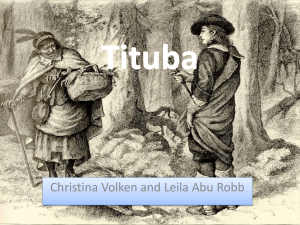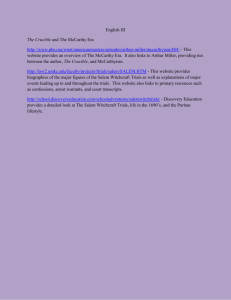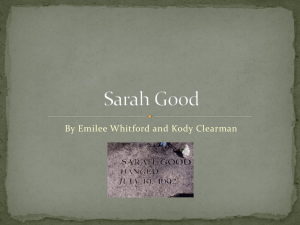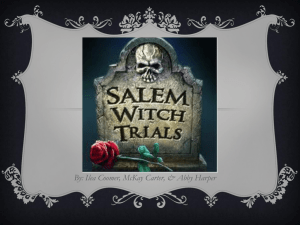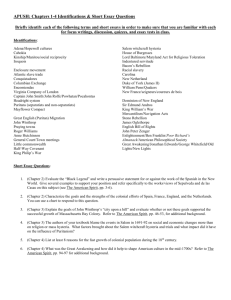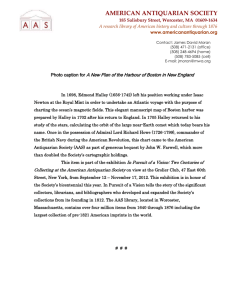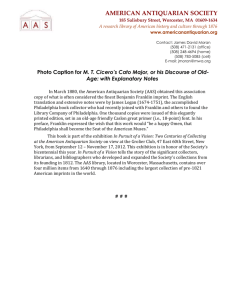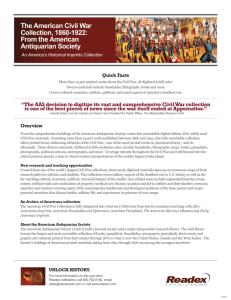The Enduring Fascination With Salem Witchcraft
advertisement
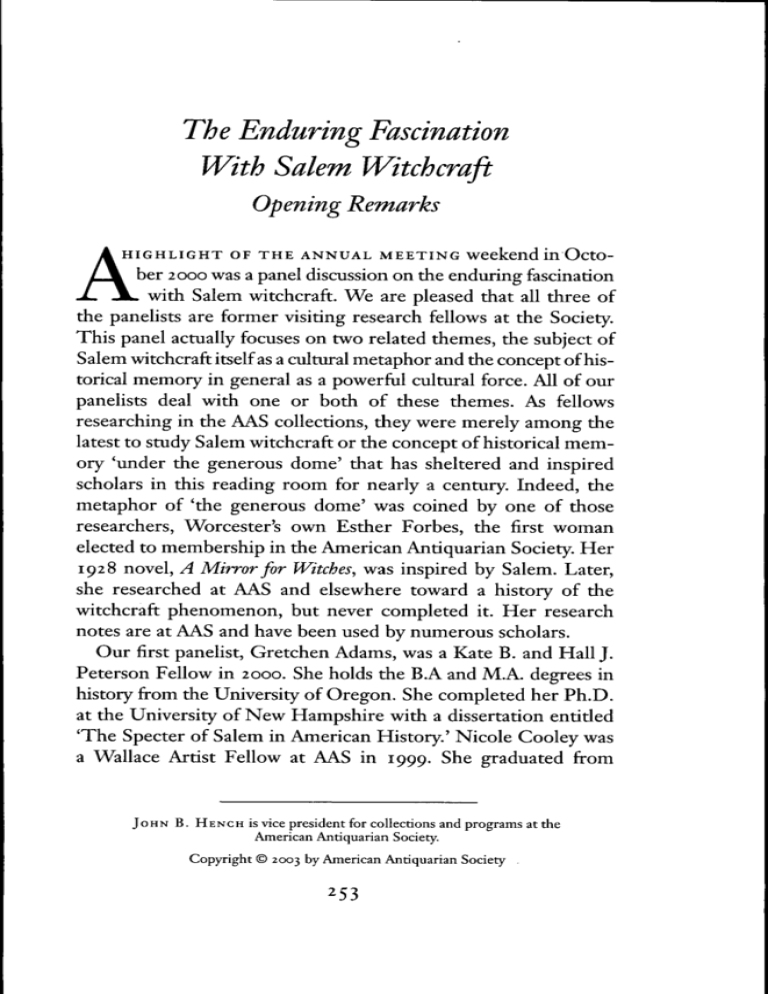
The Enduring Fascination With Salem Witchcraft Opening Remarks A HIGHLIGHT OF THE ANNUAL MEETING Weekend in OctO- L \ ber 2OOO was a panel discussion on the enduring fascination J- J L with Salem witchcraft. We are pleased that all three of the panelists are former visiting research fellows at the Society. This panel actually focuses on two related themes, the subject of Salem witchcraft itself as a cultural metaphor and the concept of historical memory in general as a powerful cultural force. All of our panelists deal with one or both of these themes. As fellows researching in the AAS collections, they were merely among the latest to study Salem witchcraft or the concept of historical memory 'under the generous dome' that has sheltered and inspired scholars in this reading room for nearly a century. Indeed, the metaphor of 'the generous dome' was coined by one of those researchers, Worcester's own Esther Forbes, the first woman elected to membership in the American Antiquarian Society. Her 1928 novel, A Mirror for Witches, was inspired by Salem. Later, she researched at AAS and elsewhere toward a history of the witchcraft phenomenon, but never completed it. Her research notes are at AAS and have been used by numerous scholars. Our first panelist, Gretchen Adams, was a Kate B. and Hall J. Peterson Fellow in 2000. She holds the B.A and M.A. degrees in history from the University of Oregon. She completed her Ph.D. at the University of New Hampshire with a dissertation entitled 'The Specter of Salem in American History.' Nicole Cooley was a Wallace Artist Fellow at AAS in 1999. She graduated from JOHN B . HENCH is vice president for collections and programs at the American Antiquarian Society. Copyright © 2003 by American Antiquarian Society 253 254 American Antiquarian Society Brown University, received an M.EA. degree in writing from the University of Iowa, and a Ph.D. in literature from Emory University. She is a novelist as well as a poet. At AAS, she did research toward a book of poetry, 'The Afflicted Girls,' about the Salem witchcraft trials. She currently teaches literature and creative writing at Queens College, the City University of New York. Jill Lepore was a Peterson Fellow here during 1993-94. ^^^ ^'^^ ^ B.A. from Tufts, an M.A. from Michigan, and a Ph.D. from Yale. Her dissertation, which she researched in part at AAS during her fellowship, quickly became the Bancroft Prize-winning book The Name of War: King Philip '.r War and the Origins of American Identity. Some of you may remember hearing her lecture about the book here in Antiquarian Hall before the largest crowd in the history of this room and a nationwide audience on C-SPAN 2. She teaches history at Boston University and is co-founder and co-editor of Common-place, an interactive, web-based magazine of early American history, of which AAS is a patron, and, with the GilderLehrman Institute, one of its main co-sponsors. John B. Hench EDITOR'S NOTE: After this panel and as if on cue, it turned out that two more scholarly projects engaging Salem witchcraft were in progress at AAS and would be completed in time for inclusion with the symposium papers. One was by Evan Haefeli, who received his B.A. from Hampshire College and his Ph.D. in history in 2000 from Princeton University, where his advisor and chair of his dissertation committee was John Murrin, professor of history. Murrin's essay is the second one included here. ttaefeli, now assistant professor of history at Tufts University, was a matriculant in the 1998 Summer Seminar in the History of the Book led by David Hall. He describes the genesis of his note when 'I poked around the card catalogue to see if there was anything on colonial New York/New Netherland (my dissertation topic) and to my surprise found the Melyen Ietterbook.... I was amazed when I read the long paragraph from his July letter, where he suddenly starts writing about the Salem witch trials.' Evan's resulting contribution is an introduction to these documentary fragments translated from their original Dutch. Melyen's letters set the comments within the context of relations between Dutch and English Calvinists in New York and Boston in the aftermath of the Glorious Revolution.

